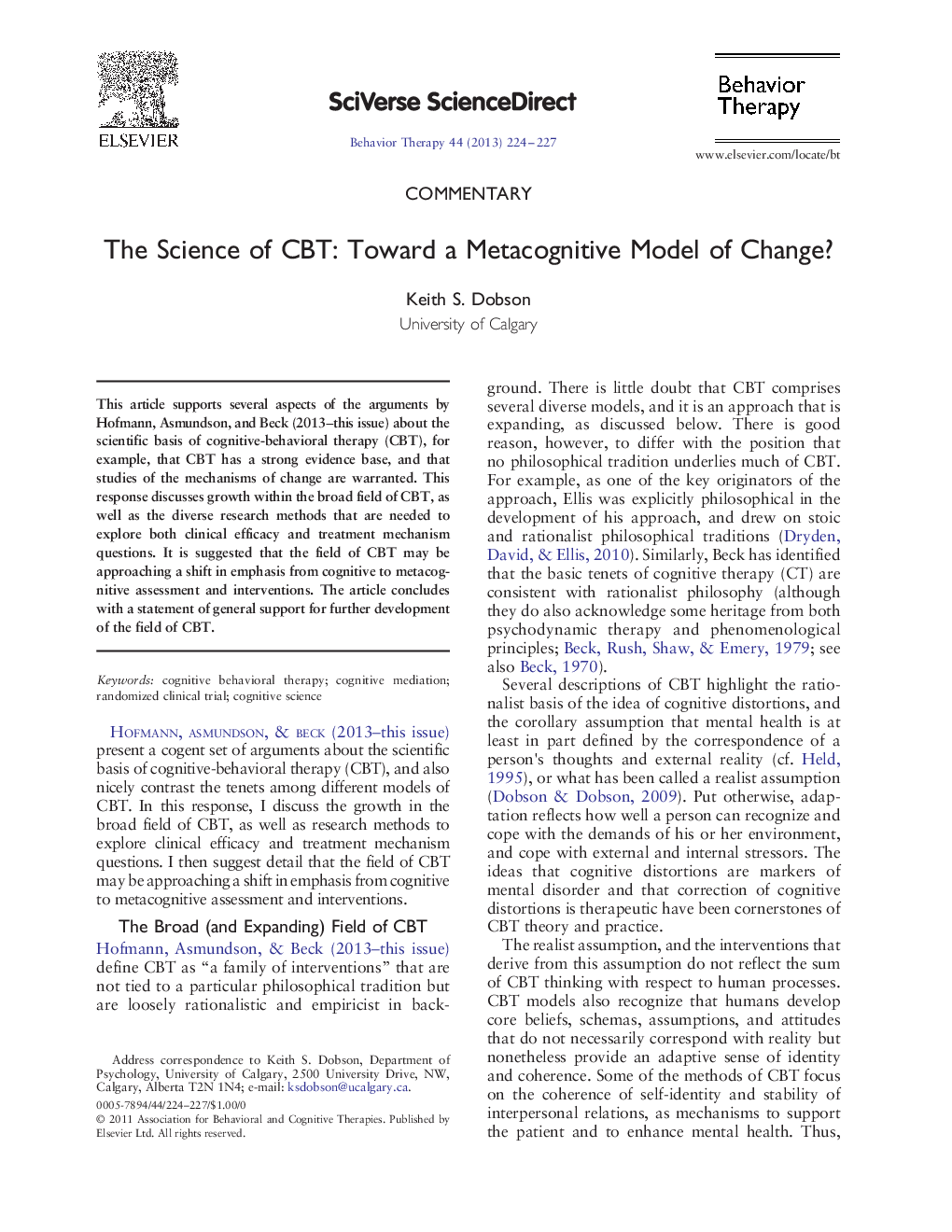| Article ID | Journal | Published Year | Pages | File Type |
|---|---|---|---|---|
| 901301 | Behavior Therapy | 2013 | 4 Pages |
This article supports several aspects of the arguments by Hofmann, Asmundson, and Beck (2013--this issue) about the scientific basis of cognitive-behavioral therapy (CBT), for example, that CBT has a strong evidence base, and that studies of the mechanisms of change are warranted. This response discusses growth within the broad field of CBT, as well as the diverse research methods that are needed to explore both clinical efficacy and treatment mechanism questions. It is suggested that the field of CBT may be approaching a shift in emphasis from cognitive to metacognitive assessment and interventions. The article concludes with a statement of general support for further development of the field of CBT.
► The article supports the proposition that cognitive behavioral therapy (CBT) is actually a broad set of interventions and models. ► Questions exist about the predictors of change in CBT. ► It is argued that mechanisms of change require considerable emphasis in future research. ► A developing focus on metacognition within CBT will require theory and research in the areas of measurement and metacognitive models of change.
